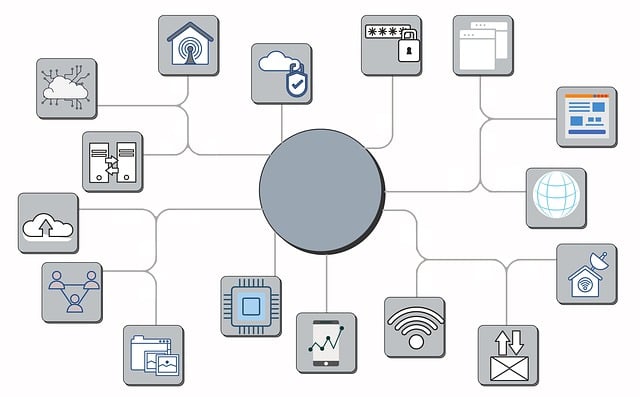The Future of SEO Conference (2025) highlights how Artificial Intelligence (AI) is revolutionizing Search Engine Optimization (SEO), transforming digital marketing by 2025. Key trends include:
Advanced NLP: Enhancing user intent understanding, semantic search, and content personalization.
Conversational AI & Voice Search: Optimizing for natural language queries via voice assistants.
Predictive Analytics: Forecasting trends, ranking factors, and user behavior shifts using machine learning.
Personalization at Scale: Delivering tailored experiences powered by AI-driven analysis of user data.
* Ethical Considerations: Addressing transparency, user control, and responsible AI development.
Marketers need to stay informed about these developments through events like the Future of SEO Conference to adapt their strategies for a competitive edge in this evolving landscape.
The year 2025 promises a transformative landscape for search engine optimization (SEO) as artificial intelligence (AI) continues its evolution. This article explores the cutting-edge trends and technologies that will define AI-driven SEO, from the evolution of AI in search to ethical considerations. We delve into key areas such as personalization at scale, natural language processing, voice search optimization, predictive analytics, and strategies for SEO professionals to navigate this AI-dominant future, as discussed at the upcoming Future of SEO Conference.
The Evolution of AI in SEO: Past, Present, and Future Prospects

The evolution of AI in SEO has been a fascinating journey, transforming the digital marketing landscape over the years. In the past, early AI applications focused on basic keyword analysis and content optimization, serving as a foundational step towards more sophisticated algorithms. Today, AI-driven SEO is an indispensable tool for marketers, leveraging machine learning to understand user intent, predict search trends, and personalize content at scale. These advancements have elevated the art of search engine optimization, enabling businesses to compete effectively in a crowded digital marketplace.
Looking ahead to 2025, the future of SEO Conference promises even more groundbreaking changes. As AI continues to mature, we can expect further integration with natural language processing (NLP) and contextual understanding. This will enable more precise ranking factors, enhancing user experience by delivering highly relevant search results. The coming years will also see a rise in conversational AI, where voice search becomes the norm, reshaping how users interact with search engines. Keeping pace with these trends will be crucial for digital marketers to stay ahead of the curve and optimize their strategies for the ever-evolving SEO landscape.
Key AI Technologies Shaping the Next Frontier of Search Optimization

The future of SEO is being defined by Artificial Intelligence (AI) technologies that promise to revolutionize how we optimize content for search engines. As we look ahead to 2025, several key AI trends are set to shape the next frontier of search optimization. Natural Language Processing (NLP), for instance, will continue to play a pivotal role in understanding user intent and context, enabling more accurate and relevant rankings. Machine Learning algorithms are already enhancing the speed and efficiency of content analysis, allowing SEO professionals to make data-driven decisions faster than ever before.
Beyond NLP and Machine Learning, other AI technologies like Computer Vision and Predictive Analytics will open new avenues for SEO strategies. These innovations can help in visual content optimization, image recognition, and forecasting search trends, enabling marketers to stay ahead of the curve. As AI continues to evolve, its integration into SEO practices will become more seamless, ultimately driving the industry forward at the upcoming Future of SEO Conference and beyond.
Personalization at Scale: AI's Role in Tailoring User Experiences

As we peer into the future of SEO at upcoming conferences, one prominent trend is the promise of AI-driven personalization at scale. Artificial intelligence has the potential to revolutionize how businesses interact with their customers by delivering tailored experiences that resonate on a personal level. By leveraging machine learning algorithms, brands can analyze vast amounts of user data to understand individual preferences and behaviors, enabling them to create dynamic content and targeted campaigns.
This personalized approach goes beyond simple product recommendations. AI can anticipate users’ needs, offer proactive solutions, and even predict future trends based on historical interactions. As technology advances, the ability to deliver hyper-relevant experiences will become a key differentiator in an increasingly competitive digital landscape, shaping the very fabric of effective SEO strategies in 2025 and beyond.
Natural Language Processing (NLP): Enhancing Content Understanding

The year 2025 marks a significant milestone in the evolution of search engine optimization (SEO) with the continued rise of Artificial Intelligence (AI). One of the most transformative aspects of this shift is the enhanced role of Natural Language Processing (NLP), which promises to revolutionize content understanding. By leveraging NLP, AI algorithms can now interpret and comprehend user queries at a deeper level, moving beyond simple keyword matching. This capability allows search engines to deliver more accurate and relevant results, aligning with the ever-increasing demand for personalized experiences among internet users.
As we look ahead to the Future of SEO Conference, discussions around NLP will be at the forefront, exploring its potential to transform content creation and optimization strategies. Understanding how NLP can analyze sentiment, intent, and context will empower marketers and content creators to produce material that resonates with audiences. This shift towards semantic search ensures that online content becomes more meaningful and user-centric, setting new standards for SEO practices in 2025 and beyond.
Voice Search Optimization: Adapting to the Rise of Voice Assistants

As we look ahead to 2025, one of the most significant shifts in AI-driven SEO is the rise of voice search optimization. With virtual assistants like Siri, Alexa, and Google Assistant becoming household names, users are increasingly interacting with technology through voice commands. This shift presents a unique challenge and opportunity for marketers and SEO specialists. Optimizing content for voice search involves a focus on conversational language, natural questions, and quick answers—very different from traditional text-based keyword optimization.
The Future of SEO Conference will undoubtedly explore these trends, delving into strategies such as enhancing voice user experiences (VUX), utilizing long-tail keywords that reflect actual user queries, and creating content that addresses the intent behind voice search requests. Brands must adapt their content strategies to accommodate this shift, ensuring their websites and content are designed with voice assistants in mind. This means providing clear, concise answers to common questions and integrating natural language processing (NLP) technologies to enhance the overall user experience.
Predictive Analytics for SEO: Forecasting Trends and Ranking Factors

In the ever-evolving landscape of search engine optimization (SEO), Predictive Analytics is emerging as a game-changer, especially with the advancements in AI. By leveraging machine learning algorithms, this innovative approach allows marketers and SEO professionals to forecast trends and understand future ranking factors long before they impact search results. Think of it as navigating a labyrinthine web of data, where hidden patterns and insights are revealed, providing a strategic edge in the digital arena.
The Future of SEO Conference will undoubtedly be a hub for discussions on how predictive analytics can revolutionize SEO strategies. As AI continues to shape the industry, understanding future trends and adapting accordingly is crucial. This technology enables professionals to make data-driven decisions, stay ahead of algorithm updates, and optimize content for search engines with precision. With predictive models, marketers can anticipate shifts in user behavior, identify emerging keywords, and even forecast the impact of new features or algorithms before they are officially released.
Ethical Considerations in AI-Driven SEO: Balancing Innovation with Transparency

As AI continues to shape the future of SEO, ethical considerations become increasingly vital. The rapid advancements in artificial intelligence bring both immense opportunities and complex challenges for search engine optimization. One of the primary concerns is balancing innovation with transparency. As AI algorithms learn from vast data sets, ensuring user privacy and preventing bias becomes crucial.
The upcoming AI-focused SEO conferences will likely delve into strategies to enhance transparency in AI-driven SEO practices. These discussions might explore ways to educate users about personalized search results and ensure they feel in control of their online experience. Ethical guidelines and responsible AI development are essential topics that will shape the direction of this field in 2025 and beyond, as highlighted by industry experts at recent Future of SEO Conferences.
Preparing for the AI-Dominant Search Landscape: Strategies for SEO Professionals

As AI continues to shape the digital landscape, the future of search is increasingly dominated by intelligent algorithms. For SEO professionals, preparing for this shift means staying ahead of the curve with a proactive approach. The key lies in understanding and embracing the evolving nature of AI-driven search. This involves keeping abreast of industry trends, attending relevant events like the Future of SEO Conference, and continuously updating skills to remain competitive.
By 2025, natural language processing (NLP) and machine learning will play a pivotal role in refining search results, personalizing user experiences, and enhancing content relevance. SEO strategists must adapt their techniques to align with these advancements, focusing on creating high-quality, AI-friendly content that resonates with both users and search engines. This shift also demands a deeper understanding of data analytics and leveraging AI tools for efficient keyword research, competitor analysis, and performance tracking.
